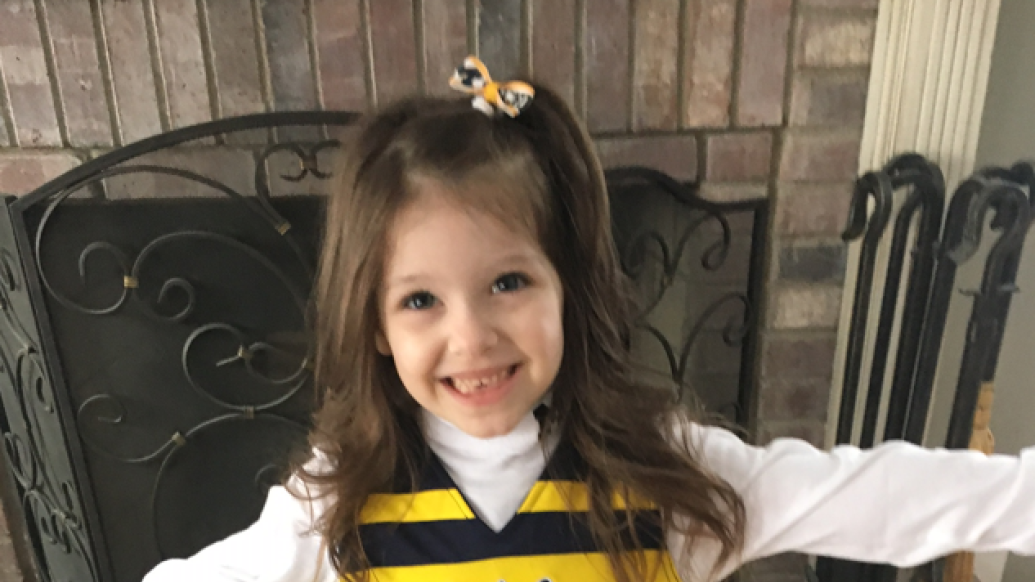
Blaire received her heart transplant on August 6th, 2013. She was two years old at the time, about a month shy of her third birthday. She had been diagnosed with restrictive cardiomyopathy and severe heart failure about a month earlier and was discharged home with a PICC line during the time we were waiting for the call we didn't know would come.
Blaire spent her time waiting making gifts for others and playing with her family. She was shy of the PICC line in her right arm and very protective of it. She kept it under her blanket, "Blanky," and never pulled at it or fussed much, except when the dressings needed to be changed. She was then, and is now, the picture of bravery.
Being two years old, she may have known what was going on around her, but as she has gotten older, she has been able to really come to a greater understanding. She is now 5 years old and is inquisitive about her heart. She asks questions and understands. Blaire is very grateful for her life, grateful to God, to her transplant team at U of M, and to the donor family. Her life has been restored.
She is developing well. She seems to brighten the lives of everyone she comes into contact with, be it classmates, passers-by in the grocery store, or other kids at the clinic. To Blaire, bravery is a way of life. Most kids her age and older cry and protest at their blood being drawn. But not her. She understands the importance of her care, what is being done and why. Although the medicines she takes don't taste good and cause her stomach pain, she still takes them exactly as she should.
Blaire, and we as a family are eternally grateful for the gift of life, the physicians and transplant team at the U of M for their excellent care and follow through. Blaire is truly a Wolverine for Life. We hope her story will inspire others to choose to donate life and bring awareness to CHD.
- Alyscia Kenewell





